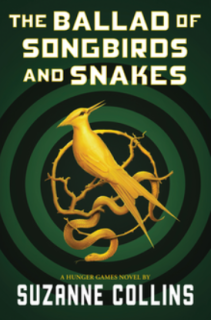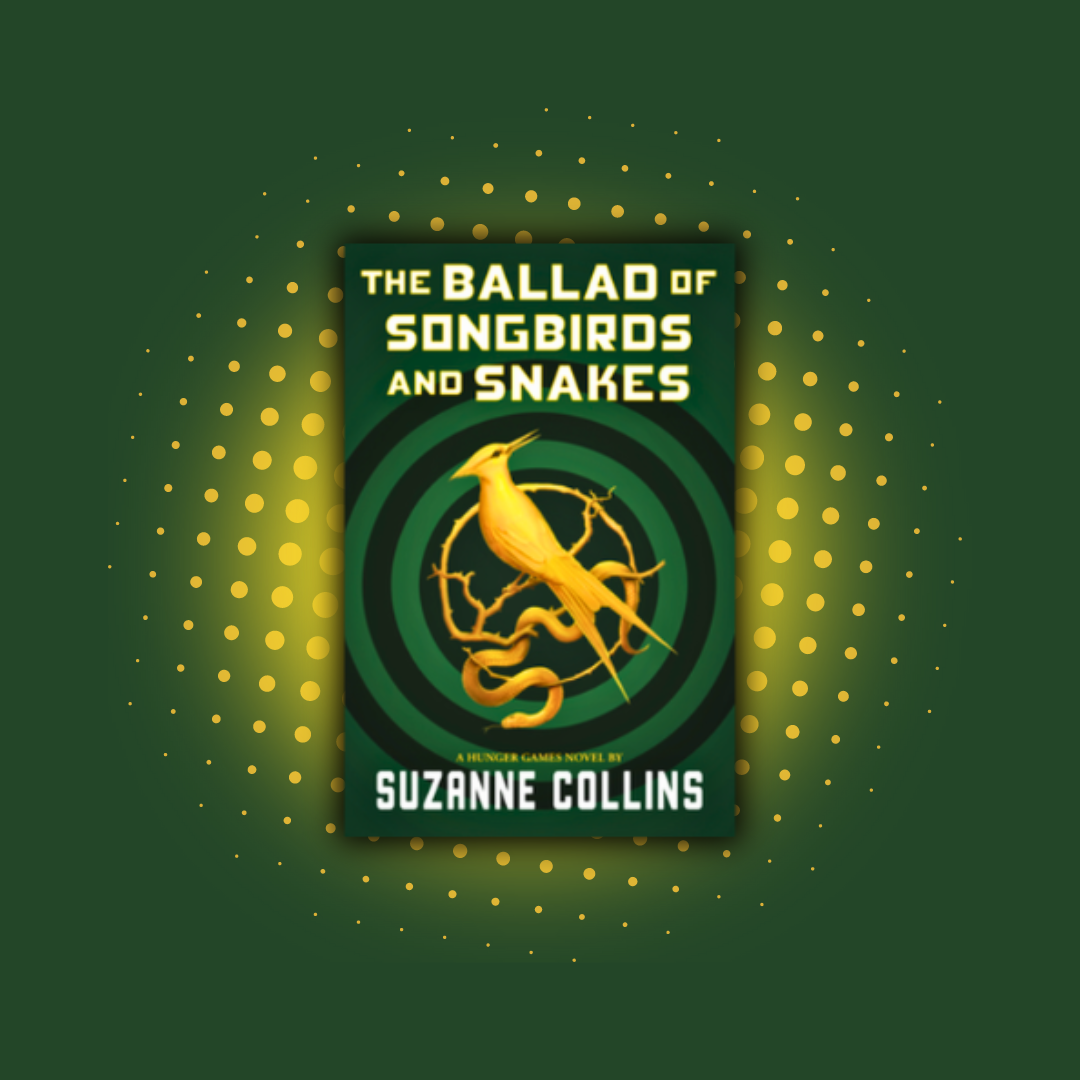
The Ballad of Songbirds and Snakes, the precursor to the bestselling Hunger Games trilogy, takes place during the tenth annual Hunger Games.
Coriolanus Snow, at this point only eighteen years old, is fighting to rebuild his family’s crumbling legacy by becoming one of the newest additions to the Games, a mentor to one of the tributes. When he gets saddled with the scrawny girl from District 12, he must figure out how to best help her succeed in the Games, pairing their charms together to manipulate the people while also adding new features to the Games.
Navigating the world of the Games as an insider is a whole new realm for Coriolanus and his tribute, but the two have pasts and priorities that shape their actions and reactions throughout the story.
This book has been out for four years now, but the movie adaptation was released in November of 2023, and I read it in preparation for watching the film. I personally suggest that anyone who has yet to read it but is interested in the film do the same.
The author, Suzanne Collins, seems to take from philosopher Thomas Hobbs and his theory about man with the theories of her character, Dr. Gaul. Dr. Gaul believes, like Hobbs in his text, Leviathan, that the “natural condition of mankind” is “war of all against all” when no government, civilization, laws, or common power can have a handle on human nature (Leviathan). The idea is that humans, at their roots, are purely animalistic, selfish, and savage. Throughout the events that unfold, you follow Coriolanus’s attempts to explain and justify the brutality of the Games to himself in this same way, even as he begins to care more about his tribute than he should.
In the character of Sejanus Plinth, a boy born in District 2 who lives in the Capital and, like Snow, is a mentor in the Games, you see the reverse of these beliefs. Much like philosopher Jean-Jacques Rousseau, he believes that humans were naturally good and caring towards others. Plinth abhors the Games and what they represent, despite his family’s standing and privilege in the Capital. Another level is added when the reader navigates the friendship between Plinth and Snow.
Here are a few things I suggest (and why) before a reader picks up this book:
- Read the original Hunger Games trilogy first. – There are so many fantastic connections between the prequel and the trilogy that left me reeling while I read, and it brought such an interesting layer to the story overall.
- Consider listening to the audiobook. – While the story is intriguing, especially for those who have familiarity with the world through the trilogy, there is a lot of backstory that slows it down, particularly at the start. I know a few people who had a hard time getting into the prequel because of this. I personally found that listening to the audiobook made these sections feel faster and kept me more engaged with the story.
Particularly for those who have read the original trilogy already, keep in mind that this story is not a redemptive tale about President Snow, but the origin of how he became who he is during the years that Katniss Everdeen is in the arena. Knowing this while you navigate his mind in the prequel opens so many doors to dissecting his balance of sanity and madness and the thin string that is holding this character together.
Whether you are familiar with the original Hunger Games trilogy or not, The Ballad of Songbirds and Snakes is an intriguing YA dystopian that covers themes of the philosophy of human nature and follows fascinatingly complex characters through even more complex situations. What would you do in Snow’s shoes?

You must be logged in to post a comment.